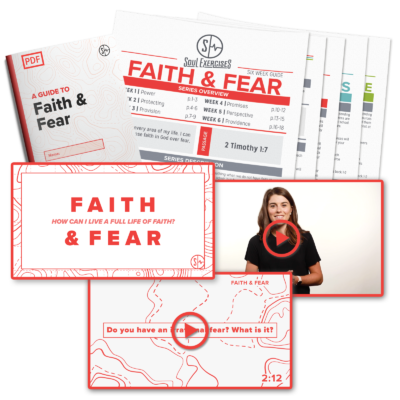If you missed Part I and Part II of this series, you can check them out on our Resource Page.
A 2018 study revealed that 45% of students never read the Bible, largely in part because they don’t know where to start.
While the numbers are startling, the fact of the matter is that we as youth workers have a responsibility to our students to bring our discipleship efforts to a new level by refocusing our foundations on Bible engagement. By now, we’ve looked at a few ways learning how to ride a bike isn’t much different from learning how to read the Bible.
Here are three reasons why:
- It starts with commitment
- It grows with community
- It sticks with consistency
It sticks with consistency.
I am the eldest of four children, so not only can I recall learning how to ride a bike, but I can recall the same experience for my three younger siblings. Each situation was radically different. I cried at age six when someone suggested I was too old for training wheels. My youngest brother asked for a ramp at age three so he could do tricks, because racing around the driveway was getting so boring.
While our trajectories were different, the first few times started exactly the same for all of us: with shaky hands, feet unwilling to leave the ground to touch the pedals, mom or dad as our usually-patient foundation, and lots of “let’s try again.” Your experience was probably similar. You had to master the daunting trifecta of tasks: to balance, pedal, and steer all at the same time (sometimes I’m still surprised that I can do it). Your mom or dad probably had to pick you up when you fell. They had patience with you. Cleaned the rocks out of your skinned knees, elbows, and palms. Ran behind you while holding the handlebars and let you go for a few feet before you put your feet down and exclaimed I DID IT! Then, you probably fell again and had to start over. Hours went it to trying, failing, trying, failing, trying, getting it, failing.
But eventually, you got it! Consistency paid off.
Consistency is key with learning to ride a bike, and it’s key to learning how to read your Bible, too. Remember that “consistency” is not associated with quick fixes. On the contrary, it often implies slower, incremental progress, full of one-step-forward-two-steps-back sorts of situations. We fail ourselves and our students when we don’t give Bible reading the time it needs to grow into something habitual, effective, and life-transforming. Jesus was not in the business of quick fixes and fast faith. He was (and is) in the business of intentional investment and daily discipleship, journeying alongside people not just when it’s easy. We are just as responsible to foster this in our groups and with our students.
What does it mean to foster consistency in students? It means finding a plan, helping students commit to it, putting trusted adults in place to help guide them, and waiting. Celebrating the tiniest wins – even if no one else thinks you should (that student who’s only reading once a week that hasn’t opened a Bible…well…ever? CELEBRATE THAT). Allow the Spirit to work as quickly or slowly as He needs to work. Don’t ditch the plan when there’s little to no visible change for a few weeks. Staying focused on the end goal of discipling students, and remembering the Bible is the best way to do that. Understanding Jesus is in it for the long haul with these students, and you should be too.
Teaching your students to engage in the Bible consistently is the best thing you can do for them. Long after games have been played and pizza has been served, an understanding of God’s Word and how to interact with it will remain. It is the foundation upon which they will build their college years, their marriages, their careers, their parenting, and more. It is time we put the Bible back where it belongs – as the foundation of our student ministries – to see life, community, and world transformation.
How are you setting your students up to make a regular habit of reading their Bibles? How are you encouraging personal commitment, fostering community, and celebrating consistency?
Soul Exercises is a full curriculum designed to help students build Bible-reading habits. Scroll down to get a sample pack of Soul Exercises now!

